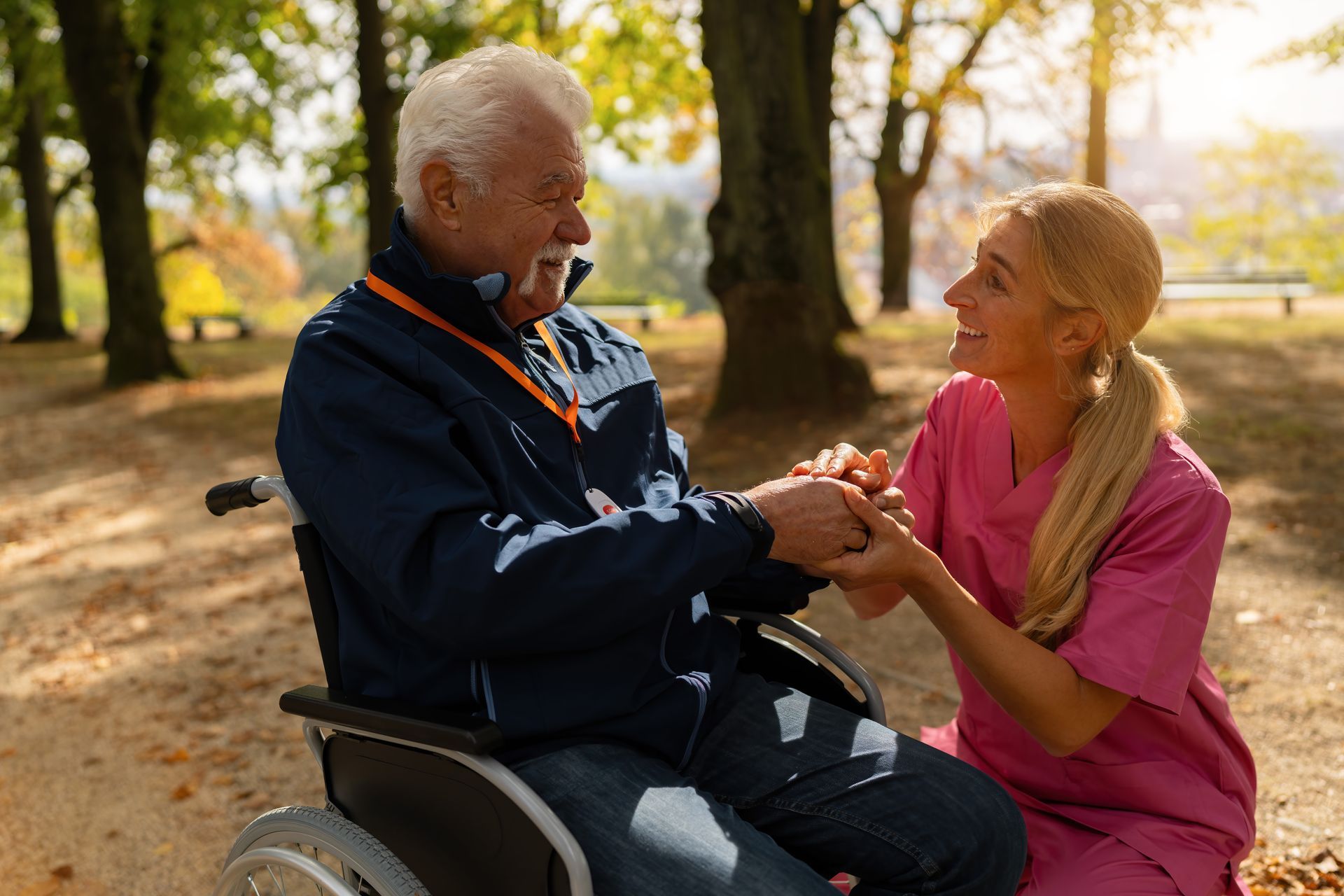Give us a call: (303) 814-2688
Email us on: francis@assuredal.com
BLOG
Alzheimer-Incontinence
Peter Brissette • April 11, 2016
Incontinence
Many people with dementia have loss of bladder or bowel control (incontinence). Causes include inability to recognize natural urges, forgetting where the bathroom is or side effects from medicine. Have the doctor rule out medical problems as the cause.
Causes of incontinence
If a person with Alzheimer’s has recently started to lose control of his or her bladder and bowels, the first and most important step is to determine the possible causes.
Consider the following:
Medical conditions
- Urinary tract infection, constipation or a prostate problem.
- Diabetes, stroke or a muscular disorder such as Parkinson’s disease.
- Physical disabilities that prevent the person from reaching the bathroom in time.
Medications and diuretics
- Sleeping pills and anxiety-reducing drugs may relax the bladder muscles.
- Drinks such as cola, coffee and tea can act as diuretics; a diuretic increases urination.
Environment and clothing
- Make sure the person can find the bathroom.
- Remove obstacles, such as furniture, in the path to the bathroom; make sure the path is well-lit.
- Provide clothes that are easy to remove.
Dehydration
- Don’t withhold fluids. This could cause dehydration, which could lead to a urinary
- act infection and increased incontinence.
Understand
- Bladder and bowel accidents are embarrassing. Find ways to help the person keep his or her dignity. For example say, Something spilled on you instead of saying, You wet yourself.
- Be matter-of-fact; don’t scold or make the person feel guilty.
- Respect the need for privacy as much as possible.
Communicate
- Encourage the person to tell you when he or she needs to use the toilet.
- Watch for nonverbal cues such as restlessness; making unusual sounds or faces; pacing; sudden silence; or hiding in corners. These cues indicate the need to use the toilet.
- Use adult words, not baby talk, to refer to using the toilet.
- Learn the person’s trigger words or phrases for needing to use the toilet. The person may use words that have nothing to do with the bathroom (i.e., I cannot find the light), but to that person, it means going to the bathroom.
Make it easy to find and use the toilet
- Keep the bathroom door open so the toilet is visible.
- Put a picture of a toilet on the bathroom door.
- Paint the bathroom door with a color in contrast to the wall.
- Make the toilet safe and easy to use. For example, raise the toilet seat, install grab bars on both sides of the toilet, and use nightlights to illuminate the bedroom and bath.
- Consider a portable commode or urinal for the bedroom.
- Remove plants, wastebaskets and other objects that could be mistaken for a toilet.
- Remove throw rugs that may cause a person to trip and fall.
Plan ahead
- Observe and recognize the person’s routine toilet schedule.
- Remind him to use the bathroom just before his or her usual time.
- Try setting a regular schedule for toilet use. For example, help the person to the bathroom first thing in the morning, every two hours during the day, immediately after meals and just before bedtime.
- Identify when accidents occur, then plan for them. If they happen every two hours, get the person to the bathroom before that time.
Follow up
- Check the toilet to see if the person has urinated and/or moved his or her bowels.
- Help the person wipe and flush the toilet.
- Regularly wash sensitive skin areas and apply powder or ointment.
Monitor fluids
- Limit the person’s intake of liquids before bedtime.
- Cut down on drinks that stimulate urination such as cola, coffee, tea and juice.
Adjust and innovate
- Choose clothing that is easy to remove and to clean.
- Consider having the person wear padded undergarments or adult briefs.
- Give the person plenty of time in the bathroom to empty his or her bladder and bowels.
- Run water in the sink or give the person a drink to stimulate urination.
- Rubber sheets or incontinence pads on a person’s bed may help keep fluid from soaking into the mattress.
The Alzheimer’s Association is the leading voluntary health organization in Alzheimer care, support and research.
Updated October 2004

January 24, 2025
Legal planning is essential for families that care for a loved one with dementia. While dementia affects memory and cognitive function, it also creates unique challenges in making financial and healthcare decisions. Taking legal steps early ensures that seniors’ wishes are respected and caregivers have the authority to manage their loved one’s needs effectively. Understanding the legal landscape of dementia care helps families avoid crisis decisions. From securing medical power of attorney to safeguarding assets, legal preparation protects seniors and their families. Early planning also eases future transitions and provides peace of mind during challenging times.
© 2025
All Rights Reserved | Assured Senior Living













